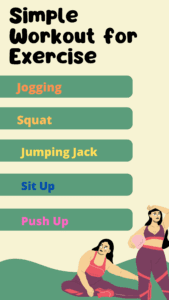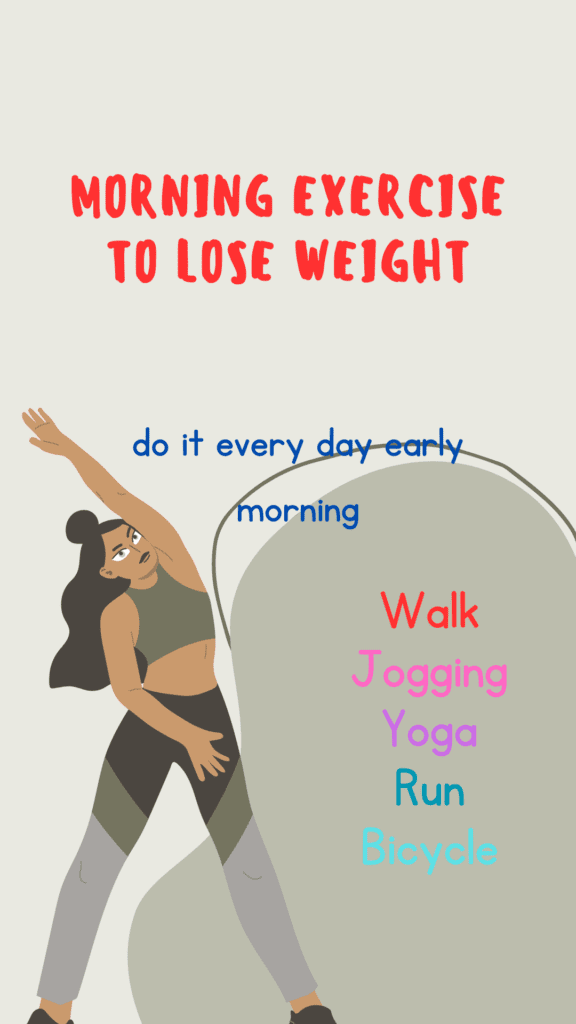Table of Contents
ToggleTypes Of Exercise
Exercises and it’s Benefits
Cardiovascular (Aerobic) Exercises : These exercises are aimed at improving cardiovascular health, increasing endurance, and burning calories. Examples include:
Running
Cycling
Swimming
Walking
Jumping rope
Dancing
Strength Training Exercises :
These exercises focus on building and toning muscles, improving strength, and increasing bone density. Examples include:
Weightlifting
Bodyweight exercises (push-ups, pull-ups, squats)
Resistance band exercises
Kettlebell exercises
Pilates
Flexibility and Stretching Exercises :
These exercises help improve flexibility, range of motion, and joint mobility, reducing the risk of injury and improving posture. Examples include:
Yoga
Pilates
Static stretching
Dynamic stretching
Tai Chi

Balance and Stability Exercises :
These exercises target balance and proprioception, improving coordination and reducing the risk of falls, especially in older adults. Examples include Exercises and it’s benefits :
Balance exercises on one leg
Bosu ball exercises
Stability ball exercises
Yoga
Tai Chi
High-Intensity Interval Training (HIIT) :
HIIT involves alternating between short bursts of intense exercise and brief recovery periods. It helps improve cardiovascular fitness, burn calories, and boost metabolism. Examples include:
Tabata workouts
Circuit training
Sprint intervals
Functional Training :
These exercises mimic real-life movements and activities, improving overall fitness and enhancing performance in daily tasks. Examples include:
Functional fitness workouts
CrossFit
TRX suspension training
Recovery and Regeneration Exercises
: These exercises focus on promoting recovery, reducing muscle soreness, and improving mobility. Examples include Exercises and it’s benefits:
Foam rolling
Stretching
Yoga
Light walking or cycling
It’s important to incorporate a variety of exercises into your fitness routine to target different muscle groups, prevent boredom, and maximize results. Additionally, always consult with a healthcare professional before starting any new exercise program, especially if you have any underlying health conditions or concerns.
Benefits of Exercise
Improved Cardiovascular Health
: Regular exercise strengthens the heart and improves circulation, reducing the risk of heart disease, high blood pressure, and stroke.
Weight Management
: Exercise helps burn calories and build muscle, making it an effective tool for weight loss and weight management. It also boosts metabolism, leading to increased calorie burn even at rest.
Increased Muscle Strength and Endurance
: Strength training exercises help build muscle mass and improve muscle strength and endurance, making daily tasks easier and reducing the risk of injury.
Enhanced Flexibility and Range of Motion
: Stretching and flexibility exercises improve joint mobility, reduce stiffness, and enhance overall flexibility, reducing the risk of injury and improving posture.
Better Mental Health
: Exercise is linked to improved mood, reduced stress, anxiety, and depression, and enhanced mental well-being. It stimulates the release of endorphins, neurotransmitters that promote feelings of happiness and relaxation.
Boosted Cognitive Function
: Regular physical activity has been shown to improve cognitive function, memory, and concentration, and reduce the risk of cognitive decline and dementia as we age.
Increased Energy Levels
: Exercise increases energy levels by improving circulation, delivering more oxygen and nutrients to cells, and boosting overall stamina and endurance.
Improved Sleep Quality
: Regular exercise promotes better sleep by regulating the sleep-wake cycle, reducing stress, and promoting relaxation. It can help you fall asleep faster, stay asleep longer, and enjoy more restorative sleep.
Stronger Immune System
: Moderate exercise strengthens the immune system, reducing the risk of illness and infection. It helps stimulate the production of white blood cells and antibodies, which help fight off pathogens.
Enhanced Longevity and Quality of Life
: Regular physical activity is associated with increased longevity and a higher quality of life. It reduces the risk of chronic diseases, improves overall health and well-being, and helps maintain independence as we age.
These are just a few of the many benefits of exercise. Incorporating regular physical activity into your routine can have a profound impact on your overall health and quality of life, both now and in the long term. That exercises and it’s benefits good for health.



Pingback: Belly Fat:"Trimming the Middle: Effective Strategies to los0
Pingback: crisis: Devastating Impact of War on Humanitarian crisis00
Pingback: Crime Rates:Unraveling the Surge: Exploring the Factors Beh0